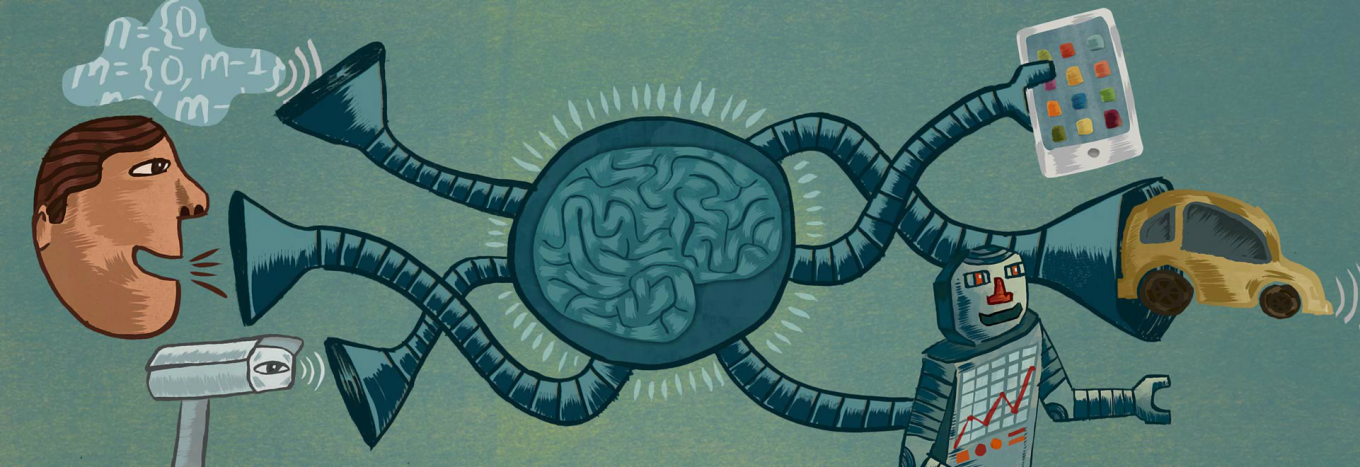
The future we are stepping into is pretty much uncharted. New technology developments are shaping the way we produce, consume and interact with each other, both from the customer side and from the business perspective. The key, then, resides in whether we will be able to be agile enough to keep up or, on the contrary, we will get stuck on old paradigms with an expiry date labelled on them.
The main issue we will encounter is about how fast technology will change the established models in the years to come, and if the different society forces will act with enough agility to catch up. While we are already foreseeing those disruptive new methods such as quantum computing, nanotechnology and robotics, and we even know they will disrupt any time in the next 4 or 5 years, most businesses aren’t getting ready for those changes, thinking they are still far from being applied, or they are just too busy understanding the current technologies.
Even more worried is the way consumers and regulators are facing these changes. The recent Cambridge Analytica scandal using Facebook’s users data has opened the problem wide. It shows how big firms are operating, with no regulation overseeing their companies’s policies, which are in fact written by them. The outcome of this huge misstep is yet to be seen. New laws need to be drafted, regulating how privacy is handle by these companies. Although I personally foresee little changes as users have accepted their game rules signing up their unavoidable and non-negotiable terms and conditions contracts.
That is a clear example of how customers are not keeping up with how technology and new models work, showing a lack of agility. If customers don’t understand the importance of their privacy and their data as a business commodity in the new era of innovation, they will be exploited as mere assets with little to say about it.
But the question beyond this point is a must-do question: what technologies are set to disrupt the established world as we all know it in the next years?
The Disruptive Technologies
According to different experts, we are now entering a new revolution, a new era “much like the computer revolution was built on top of electricity, the new era will use computing to drive advancement in other fields, being the New Data one of the most advancing one, as it can be applied to different industries in multiple ways.
The use of data through different distributed ledgers or how it is better called, blockchain, is set to change the future of intercoms between businesses and customers.
Writer Greg Satell defines it as it follows:
“Today’s technologies allow us to collect data in real time and apply it to the real world through the use of advanced analytics and predictive modeling. Open data for science is beginning to transform how new discoveries are made, in some cases altering traditional notions of scientific method. This is not just a difference in scale, but a fundamental difference in kind.
These are important developments in and of themselves, but what’s really exciting is the potential to apply new technologies and new data to the creation of completely new business models.”
The business in the new Era of Innovations
This agility concept applied to innovation schemes in technology development is treated by expert Greg Satell in his article ‘A New Era Of Innovation’. According to him, “the idea of agility as the defining competitive attribute has become such an integral part of the conventional wisdom that few today realize that is is a relatively recent phenomenon. It used to be that research and development were significant barriers to entry, especially in information technology.”
He basically relates the idea of agility applied to businesses and their attitude against new technologies. He also sees the year 2020 as a tipping point for a new series of technologies to be mature enough to being released.
“Yet after 2020, things will begin to change. That old trusty friend, Moore’s law, will end. Advances in lithium-ion batteries, which we’ve come to depend to power our laptops, smartphones and, increasingly electric cars, will slow to a crawl. Bloomberg also predicts that electric cars will be cheaper than gasoline cars by 2022, ending the dominance of the internal combustion engine.”
And he continues with: “while some things are ending, others are just beginning. Solar energy is expected to hit global grid parity by 2020 and we should be able to decode genomes for less than $100 in a decade or so, unlocking completely new scientific possibilities. Experts also predict that there will be 10 million self-driving cars on the road by 2020.”
This means that in a nutshell, we are likely to see transformations across a wide variety of industries, including information technology, healthcare, energy and transportation.
And in a world with such a high pace of change, agility means surviving. And as Greg Satell says, “it’s better to prepare than adapt because, by the time you see the need to adapt, it may already be too late.”

Hernaldo Turrillo is a writer and author specialised in innovation, AI, DLT, SMEs, trading, investing and new trends in technology and business. He has been working for ztudium group since 2017. He is the editor of openbusinesscouncil.org, tradersdna.com, hedgethink.com, and writes regularly for intelligenthq.com, socialmediacouncil.eu. Hernaldo was born in Spain and finally settled in London, United Kingdom, after a few years of personal growth. Hernaldo finished his Journalism bachelor degree in the University of Seville, Spain, and began working as reporter in the newspaper, Europa Sur, writing about Politics and Society. He also worked as community manager and marketing advisor in Los Barrios, Spain. Innovation, technology, politics and economy are his main interests, with special focus on new trends and ethical projects. He enjoys finding himself getting lost in words, explaining what he understands from the world and helping others. Besides a journalist, he is also a thinker and proactive in digital transformation strategies. Knowledge and ideas have no limits.



























